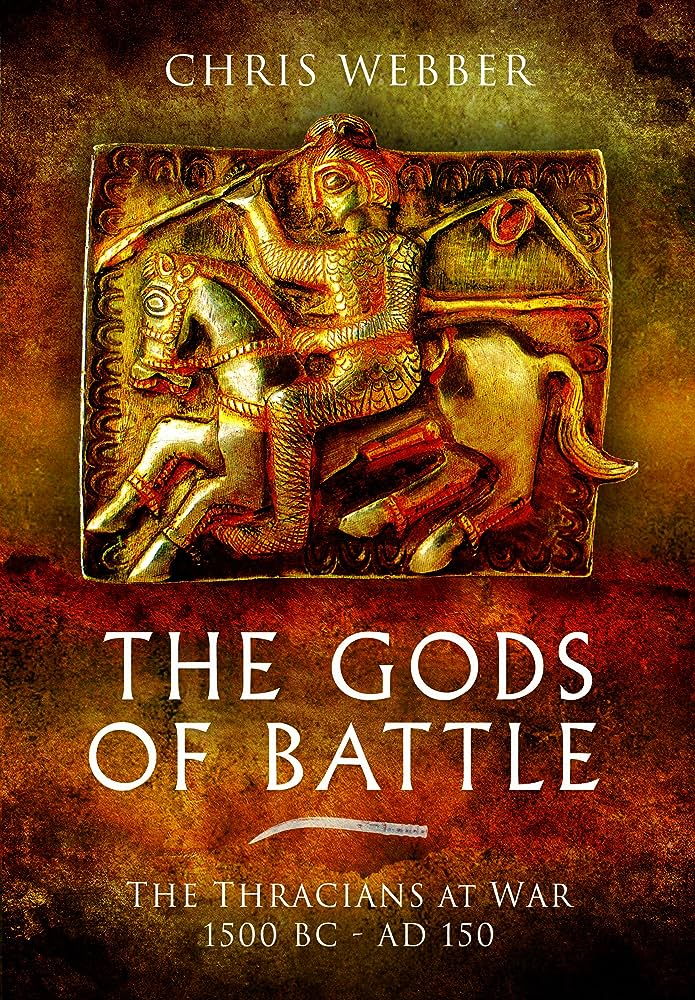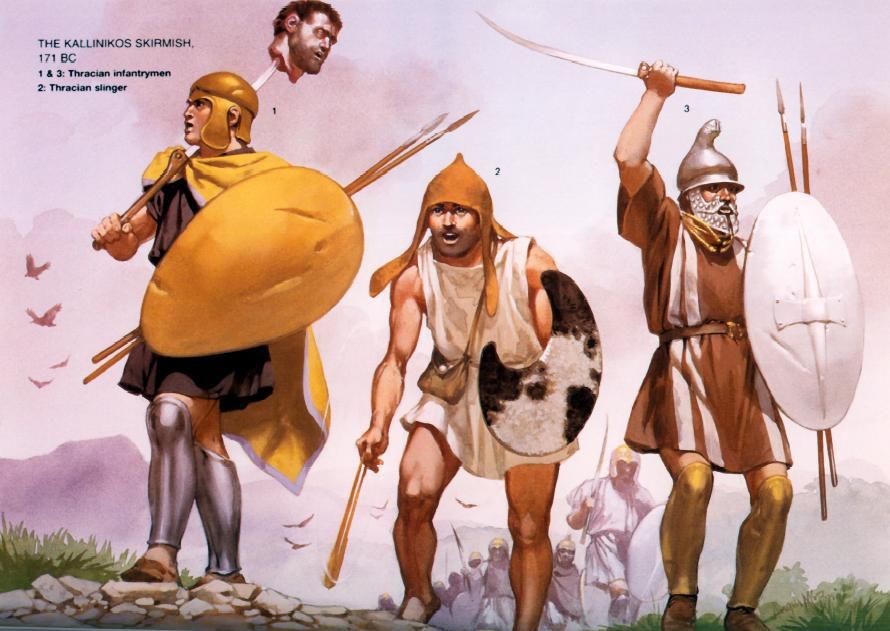 The Thracians were one of the great barbarian peoples of ancient history. The Greeks lived in fear of invading hordes of Thracian warriors. Later, they were the backbone of Macedonian and other Hellenistic monarchies armies. Herod of Judea employed them. Spartacus was a Thracian.
The Thracians were one of the great barbarian peoples of ancient history. The Greeks lived in fear of invading hordes of Thracian warriors. Later, they were the backbone of Macedonian and other Hellenistic monarchies armies. Herod of Judea employed them. Spartacus was a Thracian.
Chris Webber’s The Gods of Battle (Pen & Sword, 2011) is an examination of the Thracians at war 1500 B.C. to AD 150. We know so little about the Thracians including their language. Everything written about them were by outsiders.
Webber reconstructs the Thracians at war. Their society has been described more than once as being like Heroic Era Greece. Thrace was never unified but remained divided under various tribes. The Odrysai did briefly have a large state that is the closest thing to the unified Thrace.
Chapter 1: Historical Outline
Chapter 2: Thracian Costume
Chapter 3: Armour
Chapter 4: Weapons
Chapter 5: The Thracian Army
Chapter 6: Military Organization
Chapter 7: Fortifications
Chapter 8: Battles and Tactics
Chapter 9: Thracian Tribes.
207 pages of text, another 42 pages of glossary, notes, bibliography, and index.
This is most detailed book you will ever see on the Thracians. Their form of warfare was generally that of northern barbarians – light infantry and light cavalry. The Greeks hired Thracians as peltasts (javelin throwing light infantry) and also modeled their own peltasts on the Thracians. Southern Thracians were influenced by the Greeks adopting their helmets for example. Northern Thracians were influenced by the Scythians using their costumes and tactics.
Webber gives the most info I have seen on the Thracian curved short sword, the sica and the longer curved falx. Richard L. Tierney’s character Simon of Gitta used a sica as his main weapon.
If you are a would be writer of fantasy fiction, I would recommend The Gods of Battle as a good source on quasi-barbarian arms and armies.

Angus McBride from Osprey Booklet
Please give us your valuable comment